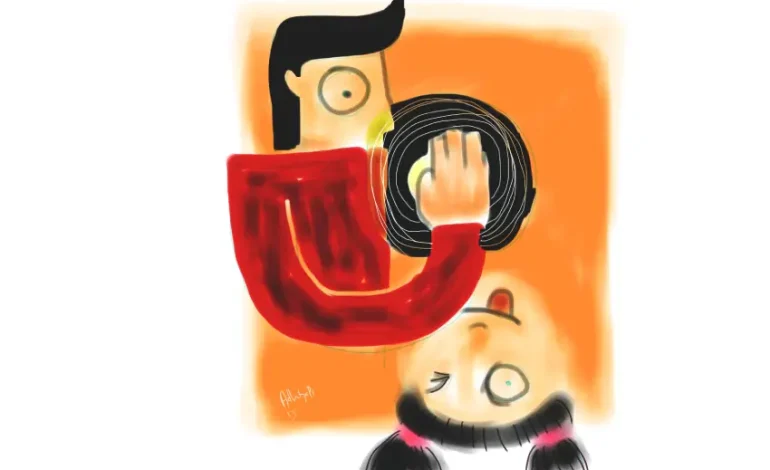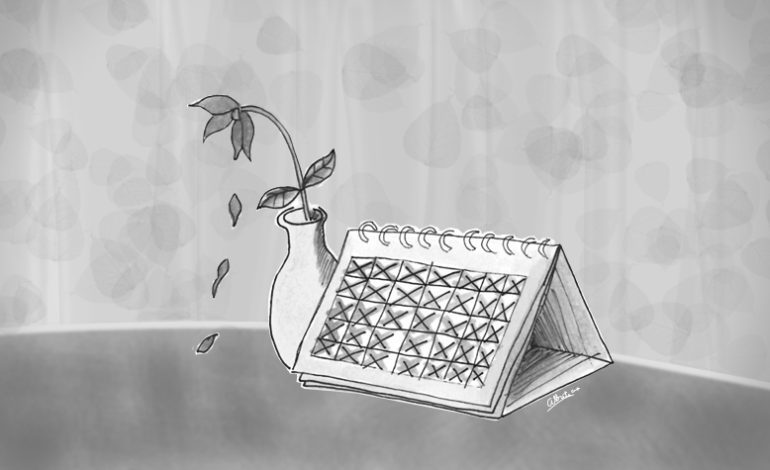The Scourge of Being a Half-Breed

I am half Indonesian and half French, but born and raised in London. Growing up, I rarely visited Indonesia, but I was blessed to have its culture and traditions instilled in me since I was a child, thanks to a very proud Indonesian father.
At home, my understanding of what it was to be Indonesian evolved from being encouraged to read the novels of Pramoedya Ananta Toer, sleeping with a keris (traditional Indonesian dagger) under my pillow like all women of South Sulawesi’s Bugis nobility, learning the ancient warrior’s art of Pencak Silat, and mastering how to eat with hands gracefully.
Within my household, I was a French speaking, English-born, proud Indonesian girl. But it was only through the assimilation into the Indonesian community in London, that I found out that I was not identified as an Indonesian, but an “Indo”, an Indonesian of European decent: a half-breed.
What does it mean to be an Indo? For me, it’s a blessed existence between two worlds, rich in open-mindedness, tolerance and knowledge. But, to many Indonesians, being Indo merely means beauty, prestige and pride.
As a teenager, during family holidays in Indonesia, I would join my family in their daily ritual of watching sinetron or Indonesian soap opera. Though I didn’t understand a thing in the show, as I couldn’t speak the language at the time, I could see that the Indo actors and actresses on the show—easy on the eye, though, they were—were terrible actors.
Inspired by their perceived glamour, however, my relatives persisted in telling me to follow their paths: “You should move to Indonesia and do sinetron. You’re an Indo, you’ll get a job easily!” In response, I would give them a huge eye-rolling-talk-to-the-hand-I’m-gona-do-something-much-more-worthwhile-with-my-life gesture.
This shows how little one can foresee one’s own future, for 10 years later I am living in Jakarta and working as a TV presenter and actress. Hah!
In my own defense, however, I did have a plan to do something worthwhile with my degree in development. But a spontaneous move to Jakarta with little money and no development agencies wanting to employ me left me with very few options. I either had to starve or take the offers that were available. I chose the latter.
In the beginning, it was hard to come to terms with my decision to embark on a career in the entertainment industry. I kept feeling like a sell-out. I had to pretend to be some rock-stars’ girlfriend in their music videos to make rent, which made me feel like the biggest bimbo. And, though my cousins were right all those years ago that being Indo made it easier to get a foot in the door, I soon realized that my mixed ethnicity wasn’t necessarily that much of a blessing.
What I would come to experience in the entertainment industry in Jakarta reminded me of what I felt many years ago in the Indonesian community in London. It was the same feeling again of being seen as a pretty half-breed, a potential trophy daughter-in-law for women looking to marry off their sons.
There is a big market for Eurasian looks in Jakarta. I am very much aware that my ethnicity is my comparative advantage, but the Eurasian actresses tend to be typecast as bimbo. They are also disposable, because there are always going to be pretty multiracial people around. Most of the offers are for eye candy roles—the pretty girl with no substance and with little purpose. It doesn’t help that the current TV and film climate in Indonesia is extremely limited, and, as such, roles or characters (particularly in film) are also limited, and very much defined by ethnicity.
I recently spoke to rising movie star Joe Taslim on the subject, and he recalled that because of his Chinese ethnicity, prior to getting his role in The Raid, he would only ever get a callback for the “boyfriend from Hong Kong” character. The same applies to Eurasians. We monopolize sinetron and TV commercials where the prerequisites are merely a marketable face, not so much talent. Few directors, particularly in film are willing to give you the opportunity to explore roles outside of Eurasian stereotypes. I would kill to play Nyai Ontosoroh or Srintil, or some village girl with psychological issues, but no one can ever look past the mixed race face.
But far from making me cynical, I still believe that Eurasian performers like me can maintain a diverse and long career in this industry, if we offer more than just a pretty face. This means good work ethic and a high level of professionalism.
If you work hard and are talented, then a pretty face is just a bonus; it shouldn’t define who you are or how you work. The industry does not only see Eurasians as being marketable, it also judges us on how we judge ourselves. If we feel our worth lies in our exterior, we will forever be judged on that alone.
This is where I make a stand to not be labeled as just another Eurasian on TV. This has not been easy. I refuse jobs that devalue my intellectuality, and I say “Hell, no!” to anything that promotes unhealthy perceptions of beauty, such as skin-whitening products. But this greatly limits myself because all the roles I refuse to take are the majority of my job offers.
Five years in this industry, I still live in a rented room in a boarding house and ride an ojek (motorcycle taxi) to the set. It doesn’t matter, though, as long as I can take pride in my work, I can be a positive influence on people, and I can show them that I deserve to be here because I’m a hard worker and a professional—not because I’m Indo.
About Hannah Al Rashid
Hannah is, in her own words, a confused mongrel child. Born and raised in London to a Bugis father and a French mother, she studied Indonesian and Development Studies at the School of Oriental and African Studies. She moved to Jakarta in 2008 to work in development, but for the past five years has worked as an actress and TV presenter instead. Hers is a perspective of a confused child of all nations, lost in the fatherland, trying to make rent as a performing monkey.
Photo by Joko Anwar, Director of “Modus Anomali” which Hannah starred in.






















